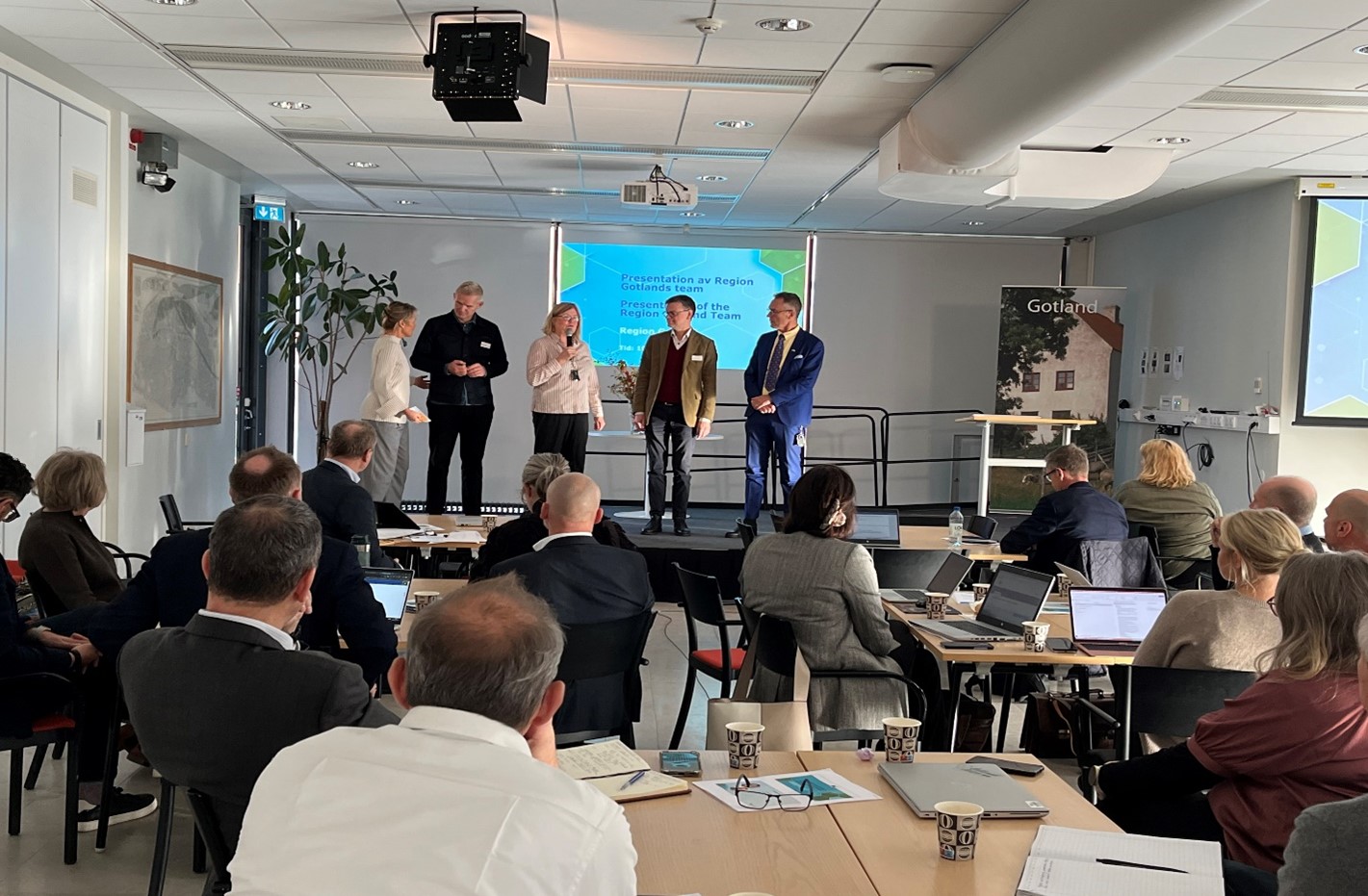In 2024, the European Commission launched the second edition of JTP Groundwork, a technical assistance tool under the Just Transition Platform (JTP). JTP Groundwork supports Just Transition Fund (JTF) regions to implement their Territorial Just Transition Plans (TJTPs). The second edition delivers 12 projects across 16 JTF territories, including the Gotland Region in Sweden.
JTP Groundwork: Labour market effects of the green transition in Gotland, Sweden
- 04 December 2024

Gotland aims to reduce greenhouse gas emissions from cement and lime industry
One of the main objectives of the TJTP in the Gotland Region is to support the reduction of greenhouse gases from the cement and lime industry, while increasing the use of sustainable energy sources.
In the period 2020-2023, Heidelberg Materials in Slite emitted an average of 1.6 million tonnes of CO2 per year, of which an average of 89% originated from fossil fuels. This plant accounts for around 80% of the production and emissions of the Swedish cement industry. Cement and lime production on Gotland accounts for 10% of total Swedish industrial emissions of fossil carbon, further illustrating the environmental impact of the region’s industry.
The green transition and reduction of CO2 emissions at Heidelberg Materials in Slite as well as at Nordkalk in Storugns are therefore pivotal for industrial transition on Gotland and in Sweden as a whole. Both companies plan to make significant investments in their production facilities to achieve this green transition.
Analysing the impacts of the green transition on the labour market
The cement and lime industry is particularly important for rural areas and the northern part of Gotland, where local communities are significantly dependent on this industrial sector. While the number of jobs created by the cement industry is relatively limited, its economic relevance is notable compared to other regions, as the Swedish cement and lime industries are centred in Gotland due to its geography.
Currently, there are no suggestions that the transition will bring job losses in Gotland. However, plans to increase energy efficiency, electrify industries, increase the use of biogas, and develop carbon capture and storage require skills and competences that are currently scarce. Smaller companies may also struggle to hire or retrain staff with the right skills in order to innovate.
JTP Groundwork is therefore supporting Gotland to analyse the labour market consequences of the green transition, including the following factors:
- Developments in the labour market on Gotland
- Demographic trends on Gotland
- Changes in education levels
- Employment trends by industry
- Planned investments in and around Gotland
- Labour market effects of planned green transition projects
- Recommendations for possible actions.
JTP Groundwork organises workshop with key stakeholders
In collaboration with the Gotland Region, the JTP Groundwork team organised a workshop for local stakeholders in Visby, Gotland, on 8 November 2024. The event welcomed over 40 representatives from industry, energy, transport, education, business development, and regional and local administration.
The workshop had two main purposes: to discuss and validate the findings of the report prepared by the JTP Groundwork team, and to discuss the actions to be taken on Gotland to attract labour and develop skills.
The event began with an update on wind power developments in and around Gotland, including information about the Swedish Government’s recent rejection of 13 wind power projects in the Baltic Sea. It also involved a panel discussion with key wind power developers, explaining their projects and potential.
This was followed by a presentation of the TJTP and its objectives, by representatives of DG REGIO (European Commission), followed by key findings from the analysis of labour market consequences of the green transition, carried out by the JTP Groundwork team.
The afternoon was dedicated to group discussions, where participants were divided into groups to discuss labour market needs and attracting workers to Gotland. The group discussions culminated in presentations from each group, sharing their insights and suggestions.
Outcomes and next steps
The event marked the first dialogue among business representatives, energy actors, regional and local authorities and educational actors on the topic of green transitions, skills and labour market development. Participants generated ideas for potential ideas and actions for business and skills development and the possibility to attract labour.
However, the discussions also highlighted the critical need for investments in transport and renewable energy, particularly cheaper energy, as well as the development of the energy distribution system. The event created or further developed links between key actors, paving the way for the initial proposed actions to be included in a roadmap to be developed next year by the Gotland Region.
As part of JTP Groundwork, a Technical Regional Forum will also take place on 11-13 March 2025 in Visby. The forum will gather regional actors from Sweden and Finland and the Baltic Sea Region to discuss labour market needs and skills development in the green transition.
